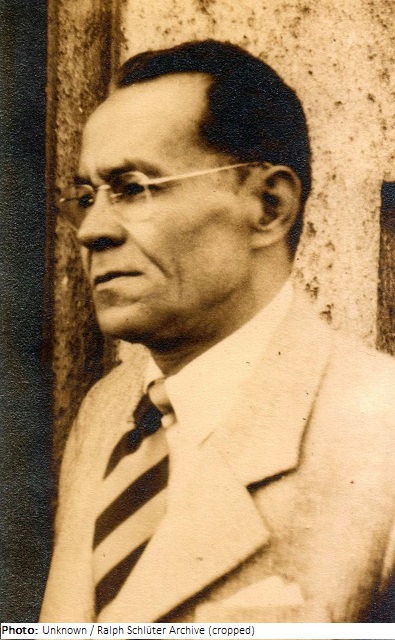Agnelo Rodrigues de Melo

Biographical information
| Roles | Competed in Olympic Games (non-medal events) |
|---|---|
| Sex | Male |
| Full name | Agnelo Rodrigues•de Melo |
| Used name | Agnelo Rodrigues•de Melo |
| Other names | Judas Isgorogota |
| Born | 15 September 1901 in Lagoa da Canoa, Alagoas (BRA) |
| Died | 10 January 1979 in São Paulo, São Paulo (BRA) |
| NOC |  Brazil Brazil |
Biography
Agnelo Rodrigues de Melo himself stated that the registration of his birth was three years late due to difficulties with the authorities. The real year of birth would probably be 1898. After his schooling in Maceió, he worked as an office worker in the textile industry. In 1920 he began his literary career when he published some sonnets in a small newspaper. In 1924 he went to São Paulo and cooperated with Monteiro Lobato in his publishing house and his literary magazine. De Melo then changed over to the Jornal do Comércio in São Paulo. In 1927 he adopted the pseudonym Judas Isgorogota.
From 1929 to 1969 he wrote for the journal A Gazeta and for 20 years was the author of its “Literary Page”. In 1929 he was also co-founder of the first children’s newspaper in Brazil. Under the pseudonym Papa Noé he wrote the texts for the comic strips of his brother Messias de Mello. In 1931 he published a study on The Literary Movement in São Paulo. Two years later, he organized for A Gazeta the “First Brazilian Music Contest”, through which young artists got their first chance to become known. From 1941 to 1958, together with the Chief of Police of São Paulo and other personalities of the city, Isgorogota published a technical-scientific police magazine.
De Melo / Isgorogota published 15 volumes of poetry, a novel and five books of children’s poems translated into different languages. In 1936, his book Recompensa received an honorable mention from the Brazilian Academy of Language. In his early years, he also used other pseudonyms like Pinto Seth and Paulo Aaron. His 1952 entry Mensagem Lírica Do Brasil À Juventude Esportiva De Todo O Mundo (Lyrical Message from Brazil to the Sports Youth of the Whole World) was published in 1952 by the Cásper Líbero Foundation in São Paulo. The work comprises sports poems in three languages – Portuguese, French, and English.
Results
| Games | Discipline (Sport) / Event | NOC / Team | Pos | Medal | As | |
|---|---|---|---|---|---|---|
| 1952 Summer Olympics | Art Competitions |  BRA BRA |
Judas Isgorogota | |||
| Literature, Open (Olympic (non-medal)) |